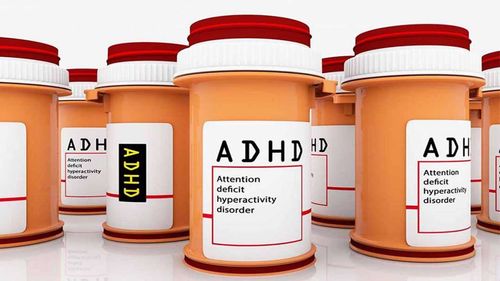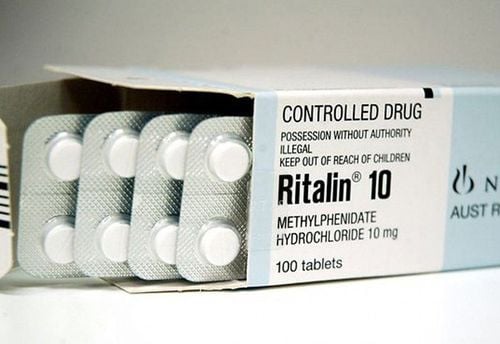This is an automatically translated article.
Changes in physical, weight or pressure, stress in life and study directly affect psychology and eating behavior, creating eating disorders in children. The disease, if not detected and treated early, can lead to serious health consequences.
1. What is an eating disorder in children?
Eating disorder in children is defined as a condition in which a child has problems with eating that are psychologically related, not food-related. Illnesses affect a child's health, emotions, and relationships.
Eating disorders in children have a high incidence for teenagers, young children are also affected but the rate is much lower. Results from many studies show that children under the age of 12 have this disease, which tends to increase significantly.
Eating disorders are especially dangerous in young children, because the disease causes long-term effects on the growth, physical and intellectual development of children. Symptoms of the disease are not the same as fussiness, picky eating, anorexia ... and it is also difficult to diagnose in young children because the weight and nutrition of children are different at each stage.
Along with the development of society with many contradictory messages about diet, exercise regimen, reasonable weight... increases pressure on children, which leads to negative thoughts. age-appropriate, typically the weight problem. Studies show that more than half of Australian primary school age children want to lose weight and 80% of 10-year-old girls in the US have already started dieting.
Symptoms of eating disorders are reflected in children's changing attitudes and behaviors towards food, this also reflects psychological problems that children are experiencing such as being teased, abused, depression, bullying...
2. Causes of eating disorders in children
Currently, the specific cause of eating disorders in children has not been identified. Many studies have shown that a number of factors can be a precursor to pathology such as genetics, environment, stressful events... Accordingly, specific factors can be mentioned as follows:
Children who have an unattractive appearance or are self-conscious about their appearance; Children always appreciate the issue of weight and appearance; Children regularly practice weight-focused sports such as ballet, gymnastics, wrestling, skating... Family members have had an eating disorder; Children with mental health problems such as depression, anxiety, attention deficit hyperactivity disorder, obsessive-compulsive disorder ...

Chứng rối loạn ăn uống đặc biệt nguy hiểm ở trẻ nhỏ
3. What are the forms of eating disorders in children?
Some forms of eating disorders in children can be mentioned as follows:
3.1. Anorexia Children with anorexia often eat very little, leading to underweight. As mentioned above, the issue of weight is often concerned in adults, but it is also affecting children a lot, making children tend to fear about weight gain and the simplest way to prevent it. What children do is eat very little.
Anorexia will lead to bad effects on the development of children as follows:
Children are underweight, malnourished; Low blood pressure, low blood pressure; Unstable heart rate, slow heartbeat; Children often feel tired, dizzy and may faint; Easily prone to digestive diseases such as constipation, flatulence; Rickets, weak bones; Slow growth and development, which in turn leads to delayed puberty; Children suffering from psychological problems such as anxiety and fear about gaining weight; feel depressed, lonely, and may have thoughts of self-harm. 3.2. In contrast to anorexia, children with bulimia are synonymous with binge eating disorder, the child's manifestation is eating too much food, eating quickly and losing control in stopping. Children can eat even when they are not hungry, in many cases they can make themselves vomit to continue eating.
Binge eating will lead to the following adverse effects on a child's development:
Weight gain and can lead to overweight and obesity; The child has an unstable heart rate; Children get tired easily and may faint; Ease nausea, vomiting blood; Tooth decay , inflammation of the salivary glands; Increased blood cholesterol levels, fatty liver; Children may have sleep apnea; Children suffer from psychological problems such as anxiety, depression, low self-esteem, easy anger and loss of control...

Chưa xác định được nguyên nhân cụ thể dẫn đến chứng rối loạn ăn uống ở trẻ em
4. Diagnosis and treatment of eating disorders in children
During the child's development, if parents notice that their child has abnormal signs of behavior and eating, it is necessary to take the child to a medical facility for an accurate examination and diagnosis. Abnormal changes in children that parents need to pay attention to are as follows:
Changing eating habits; Children often go to the toilet during or immediately after a meal; Children just like to eat alone; Children increase physical activity and practice weight-focused sports; For bulimia, defined clinical criteria include bulimia at least once a week and persisting for at least 3 months, and a combined sensation of loss of control over the speed and extent of eating. with at least 3 of the following:
Eat more food and eat faster than usual; Eat even when you are not hungry; Children just like to eat alone; Children eat until they feel uncomfortably full; Children show disgust and guilt after eating too much. Treatment of eating disorders in children is combined with a doctor, a nutritionist and a psychologist. Depending on the specific condition of the child, the doctor will give the appropriate treatment regimen to achieve the best effect.

Chứng rối loạn ăn uống ở trẻ em gây nên biếng ăn
5. Measures to prevent eating disorders in children
Parents can refer to the following measures to help prevent eating disorders in children:
Parents should not use food to reward or bribe or punish children; Do not put too much pressure on children; Parents also need to encourage children to appreciate differences, not to focus too much on appearance or use appearance as a measure of human value; Encourage children to communicate openly and express emotions freely; Do not force children to eat too much food, instead parents should create a habit to help children eat enough food, when they feel full, stop; Help children have the right awareness of the messages and images conveyed on the mass media; Regularly talk to children: Parents need to calmly and thoughtfully talk to their children to help them open up and share with you the problems that children are having; Do not compare, criticize or make fun of your child's appearance with peers; In case parents are worried and feel abnormal about their child's diet and weight, parents need to consult a doctor for the most accurate and complete advice.













